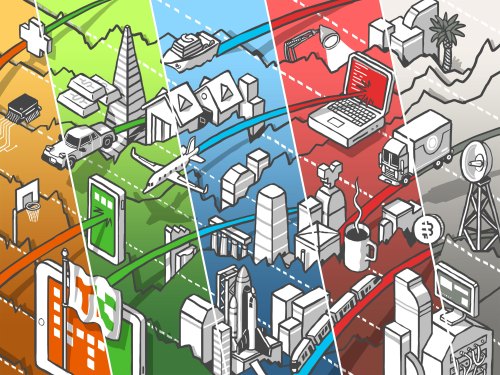As technology continues to evolve at an unprecedented pace, the transportation landscape is undergoing a profound transformation. Self-driving cars, once a concept relegated to science fiction, are now a reality, and their mass adoption promises a safer, greener, and more efficient future for our society.
Enhanced Safety through Autonomous Vehicles
One of the most significant benefits of self-driving cars is their potential to dramatically reduce the number of accidents on our roads. Human error is a leading cause of traffic accidents, accounting for up to 94% of all crashes (National Highway Traffic Safety Administration). The advanced sensors and AI algorithms in autonomous vehicles can help mitigate these risks by making real-time decisions based on their surroundings.
By automating the driving process, self-driving cars result in a significant decrease in collisions. In fact, studies have shown that autonomous vehicles can reduce accidents by as much as 90% (Stanford University). This is because self-driving cars are equipped with advanced safety features such as:
- Lidar sensors: Capable of detecting objects and pedestrians at high speeds
- Radar sensors: Providing accurate speed and distance measurements
- Camera systems: Utilizing high-resolution cameras to detect and recognize objects
These technologies, combined with AI algorithms, enable self-driving cars to respond rapidly and accurately to changing situations on the road.
Reducing Emissions and Contributing to Sustainability
Self-driving cars are also poised to reduce greenhouse gas emissions and contribute to a more sustainable future. As these vehicles become more commonplace, we can expect to see a shift towards electric and hybrid models, which have a significantly smaller carbon footprint than traditional gasoline-powered cars.
According to the United States Environmental Protection Agency (EPA), electric vehicles produce zero tailpipe emissions, reducing greenhouse gas emissions by up to 70% compared to internal combustion engine vehicles. Additionally, AI-powered coordination optimizes traffic flow, reducing congestion and fuel consumption, ultimately leading to lower emissions.
Improved Efficiency with Autonomous Driving
Efficiency is another key advantage of autonomous vehicles. By automating the driving process, self-driving cars facilitate more efficient use of time, allowing passengers to work, relax, or engage in other activities while in transit.
This could lead to increased productivity and an improved quality of life for individuals who would otherwise spend long hours behind the wheel. In fact, a study by Ford Motor Company found that commuters spent an average of 43 minutes per day driving to and from work (Ford Motor Company).
Enhancing Mobility and Accessibility
The widespread adoption of self-driving cars is expected to enhance mobility for those who may not have access to traditional forms of transportation, such as the elderly or people with disabilities. Autonomous vehicles offer newfound freedom and independence, making transportation more inclusive and accessible for all members of society.
For example:
- Elderly individuals: No longer confined to sedentary lifestyles due to mobility issues
- People with disabilities: Increased access to employment, education, and social opportunities
- Low-income communities: Improved access to job opportunities, healthcare, and other essential services
The Future of Transportation
As we continue to navigate the complexities of autonomous vehicle technology, it’s clear that self-driving cars have the potential to revolutionize the way we travel. From improved safety and reduced emissions to enhanced efficiency and increased accessibility, the benefits are vast.
However, as with any emerging technology, there are challenges to be addressed:
- Regulatory frameworks: Governments must develop and refine regulations to accommodate the integration of autonomous vehicles into existing transportation infrastructure
- Public acceptance: Educating consumers about the benefits and limitations of self-driving cars will be crucial in ensuring widespread adoption
- Cybersecurity: Protecting against potential cyber threats and vulnerabilities in autonomous vehicle systems will be a top priority
Ultimately, the future of transportation depends on our ability to collaborate and adapt to emerging technologies. As we continue to push the boundaries of innovation, one thing is clear: self-driving cars have the potential to transform society for the better.
Conclusion
The impact of self-driving cars on society promises to be profound. From enhanced safety and reduced emissions to improved efficiency and increased accessibility, autonomous vehicles are poised to revolutionize the way we travel.
As we embark on this new era of transportation, it’s essential that we prioritize public education, regulatory clarity, and cybersecurity. By doing so, we can unlock the full potential of self-driving cars and create a safer, more sustainable future for all.












